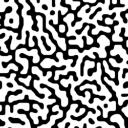Yahoo Answers is shutting down on May 4th, 2021 (Eastern Time) and beginning April 20th, 2021 (Eastern Time) the Yahoo Answers website will be in read-only mode. There will be no changes to other Yahoo properties or services, or your Yahoo account. You can find more information about the Yahoo Answers shutdown and how to download your data on this help page.
Trending News
2 Answers
- 3 years agoFavorite Answer
sin(x) = sum from n=0 to ∞ of (-1)^n x^(2n+1) / (2n+1)!
So the series in question is equal to
1-sin(x)/x , evaluated for x = π
= 1 - sin(π)/π = 1 - 0/π = 1
So the answer is 1.
- PinkgreenLv 73 years ago
The alternating series converges as T(n)->0 as n->infinity.
The sum is
S=(pi^2)/3!+(pi^4)/5!+(pi^6)/7!+(pi^8)/9!+R(4), where R(4)=the remainder after the first 4 terms.
=>
S<0.997795618+|pi^10/11!|
=>
S<0.997795618+0.002346081
=>
S<1.000141699
=>
S=1 as n->infinity.



